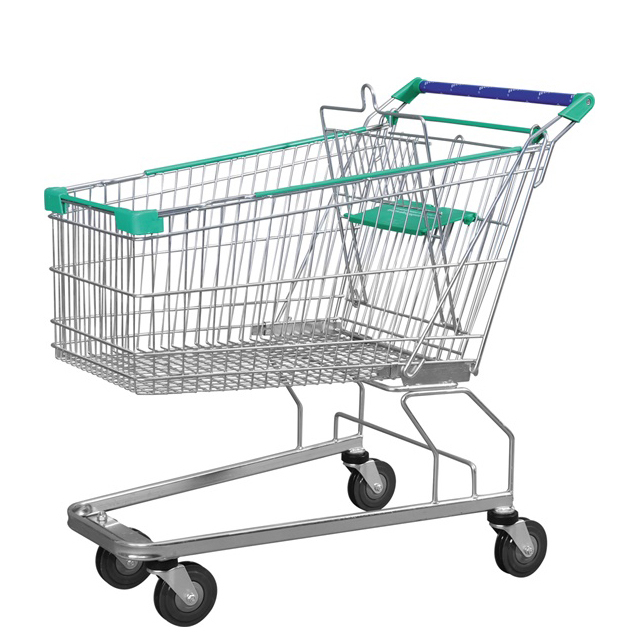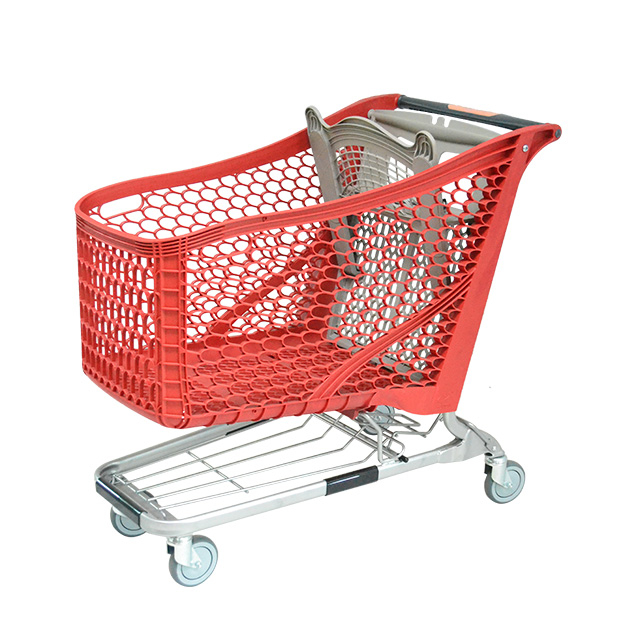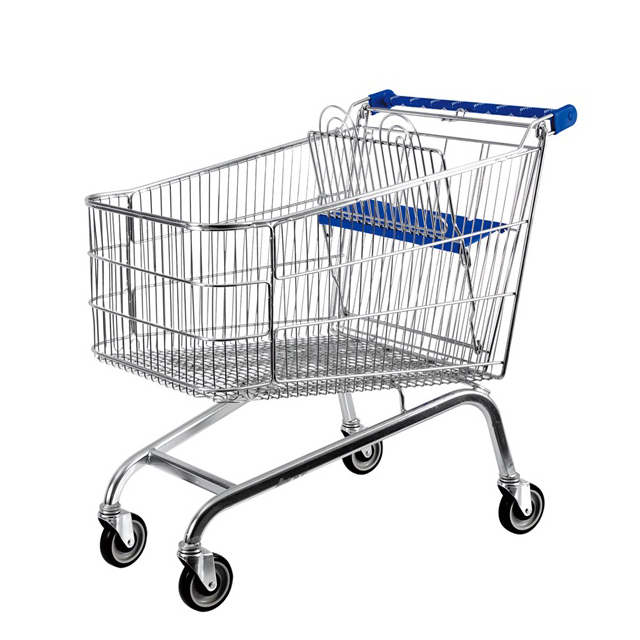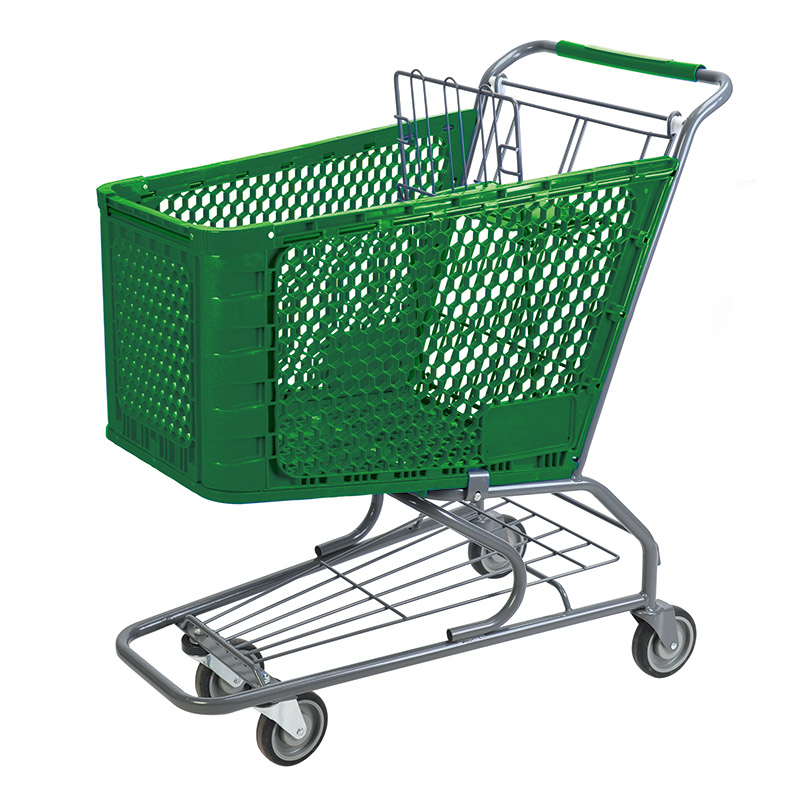/ 0086 13962299786
- Home
- Products
- Resources
- About Us
- Blog
- Recruit Distributor
- Contact Us
- All
- Product Name
- Product Keyword
- Product Model
- Product Summary
- Product Description
- Multi Field Search
Views: 480 Author: Site Editor Publish Time: 2023-09-26 Origin: Site
Shopping carts play a pivotal role in the retail and e-commerce industry, serving as an indispensable tool for both businesses and consumers. They are more than just metal or plastic structures; they represent convenience, efficiency, and a seamless shopping experience.

In this article, we will delve into the importance of shopping carts and explore the factors that influence their cost. From brick-and-mortar stores to online retailers, shopping carts are the unsung heroes of modern commerce, simplifying the way we shop and purchase goods. Let's unravel the significance of these unassuming yet crucial companions in the world of retail.
Understanding the factors that influence shopping cart costs is essential for both consumers and retailers. These factors can vary depending on whether you're considering physical shopping carts or their digital counterparts. Let's delve into the key determinants of shopping cart expenses.
For physical shopping carts, the type of material used plays a significant role in cost determination. Carts can be made from materials like steel, plastic, or a combination of both. Steel carts are durable but tend to be more expensive due to the cost of materials and manufacturing processes. On the other hand, plastic carts are lighter and more affordable but may not be as sturdy. The manufacturing method, such as welding or molding, also affects costs.
Carts can be equipped with a range of features, such as ergonomic handles, swiveling wheels, child safety belts, or compartments for separating groceries. Carts with advanced features and unique designs require additional materials and manufacturing effort, leading to higher costs. Retailers often opt for customization to brand their shopping carts or include distinctive design elements, which can add extra expenses.

Carts come in various sizes, from compact hand-held baskets to oversized trolleys capable of holding substantial merchandise. Larger carts require more material to build and may include extra features for added convenience, such as deep baskets, compartments, or child seats. Retailers choose cart sizes based on their specific needs and customer demographics.
Carts designed to withstand years of rigorous use, such as those in supermarkets, require sturdier materials and construction methods. These durable carts come at a higher price point but offer long-term value by reducing the need for frequent replacements.
Each of these factors plays a role in determining the cost of shopping carts, and retailers carefully consider their unique requirements when selecting the right carts for their businesses.
The type of cart chosen can significantly affect its cost. Let's explore the different types of shopping carts and how they influence pricing.
Traditional metal shopping carts are the classic choice for most supermarkets and retail stores. They are primarily constructed from steel, making them durable and suitable for heavy use.

Metal carts tend to be on the higher end of the price spectrum due to the cost of steel and the manufacturing processes involved.
Plastic shopping carts are typically made of high-density polyethylene (HDPE). They are lightweight, easy to maneuver, and resistant to rust and corrosion. Plastic carts are generally more budget-friendly than metal ones due to the lower cost of materials and simplified manufacturing processes.

Specialty shopping carts are designed for specific purposes, such as kids shopping cart or offering hand baskets for quick shopping trips. Specialty carts can vary widely in cost, depending on their unique features and materials.
Purchasing shopping carts directly from manufacturers or suppliers is often the most cost-effective option. Manufacturers produce carts in bulk, which can lead to lower unit costs.
Manufacturers and suppliers can offer competitive pricing since they specialize in cart production. Buying in bulk directly from the source reduces intermediary markups, ultimately benefiting your budget.
Highbright offers extensive range of shopping carts with high quality at affordable prices. Whether you need standard shopping carts, specialty carts with child seats, or customized solutions tailored to your unique requirements, Highbright has a diverse range of options to choose from.
For businesses that rely on shopping carts, managing expenses is crucial. While shopping carts are essential for operations, they can also be a significant expense. However, there's a savvy strategy that can help you save money while ensuring you have the necessary equipment: buying shopping carts in bulk.
Purchasing shopping carts in bulk often comes with substantial discounts. Manufacturers and suppliers frequently offer reduced prices per unit when you buy in larger quantities. This means significant cost savings for your business.
Understanding the cost of shopping carts is crucial for businesses, especially for supermarkets and retail stores like yours. We've delved into various factors that affect shopping cart prices, from materials and size to features.
At Highbright, we specialize in providing tailored shopping cart solutions to our esteemed clients, particularly supermarkets and retail stores. We recognize the unique requirements and challenges faced by businesses in your industry, and we're here to address them.